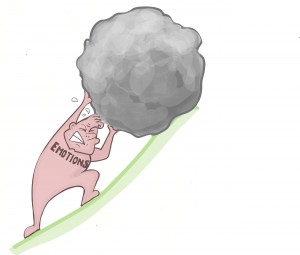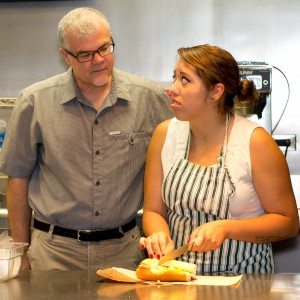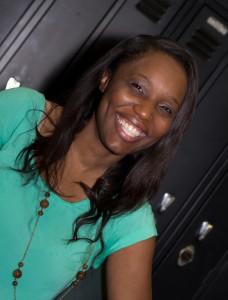Presented what I have learned putting together the Handling Intense Emotions curriculum to 12 seasoned social workers on Friday Nov 22 at a continuing education event hosted at Hamburger University by the University of Chicago. Technical glitches abounded, not with the Articulate Storyline software used to create the digitized portion of the curriculum, but the general old fashioned kind, getting the sound of a computer and out into the world. There are pitfalls to a curriuculum that uses digitized media. It raised a question: Do we need to build an analog back-up to Handling Intense Emotions.
Feedback-wise, it was a mixed set of opinions. One woman who works with a completely different population — medical students from low income communities — loved the validation and validation plus skills and saw how they could be used with stressed out young docs. “Of course you are overwhelmed. Who wouldn’t be?”
A very seasoned children’s services social worker chafed at my assertion that we were putting too much emphasis on trauma and not enough emphasis on other factors that contribute to children’s development. The trauma folks –and I consider myself one — are having their day in the spotlight. Trauma is finally being recognized for the harmful role it plays in our most difficult communities, neighborhoods and families. They don’t want the spotlight going elsewhere.
 At the same time, she thought we should not shy away from the psychoeducation in module 2 for youth. Some youth found the material demoralizing as it points out the disadvantages some youth must cope with in life. She felt strongly that it needed to be in the curriculum to help youth see that their emotional make-up makes sense.
At the same time, she thought we should not shy away from the psychoeducation in module 2 for youth. Some youth found the material demoralizing as it points out the disadvantages some youth must cope with in life. She felt strongly that it needed to be in the curriculum to help youth see that their emotional make-up makes sense.
Meanwhile, the module 4 faciliation manual for youth was completed. We are making progress!


